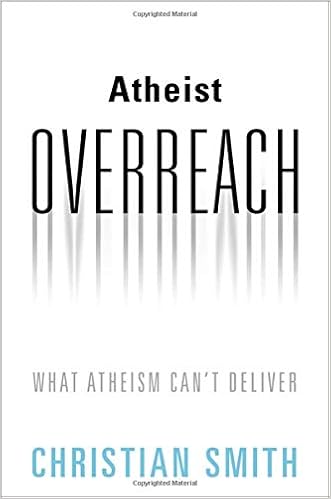
Here’s an odd program for Canada’s government broadcaster, the CBC, to sponsor:
Christian Smith is a Professor of Sociology at the University of Notre Dame, and is the author of Atheist Overreach: What Atheism Can’t Deliver. In the book, Smith addresses three main claims made by atheists: that science can determine whether God exists; that human beings are not naturally religious; and — the focus of this IDEAS episode —that human beings can be good without God. Not just good as individuals, but capable of a collective morality that can redress inequality and suffering, and lead to the betterment of all humanity.
Is morality ‘natural’?
One of the key problems with atheist arguments for universal benevolence, according to Smith, is the contention that we live in a “naturalistic” universe, in a realm that simply came to be, with no creator. So how can naturalistic atheist thinkers claim any rational basis for the high moral standard they’re reaching for?
How do you get from a naturalistic universe to the commitment that every human being on earth possesses an innate dignity — no matter how terrible, empirically, of a person they are, by the way — that human beings whom you will never meet, on the other side of the world… should matter to you … and that everyone has human rights to X, Y, and Z that we can spell out. Where does that come from? What is the basis of those moral commitments? They’re not easy to make happen. They’re not necessarily ‘natural’ to human beings. Paul Kennedy, interviewing Notre Dame philosopher Christian Smith, “How good can we really be without God?” at CBC Ideas
Should be interesting. What’s “natural” is what people happen to want. Absent any higher consideration, virtue vs. vice may come to mean success vs. failure in getting what one wants.
See also: Berlinski: There is no argument against religion that is not also an argument against mathematics
Follow UD News at Twitter!